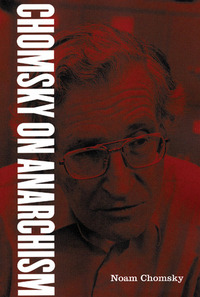You need to sign in or sign up before continuing.
Take a photo of a barcode or cover
adventurous
challenging
hopeful
informative
inspiring
mysterious
reflective
fast-paced
fast-paced
medium-paced
challenging
informative
inspiring
Good. A bit sporadic in nature, but I found it highly informative as it delves relatively deeply (given the size of the book) into collectivism in Spain - I had no idea of the successful anarchosyndicalist movements and their subsequent suppression (most notably by the Communists) in Spain during the civil war period. The book isn’t mind-bendingly philosophical but it’s still Chomsky and I leave it feeling slightly inspired but still filled with turmoil, given the evermore disastrous state of the word. Yay?
hopeful
informative
inspiring
reflective
medium-paced
informative
medium-paced
hopeful
informative
inspiring
reflective
slow-paced
informative
medium-paced
The 5 star rating system works great for this book because I liked exactly 2 out of its 5 chapters.
If we are to treat this book as an introduction to anarchism, the two chapters with the interviews are great. Chomsky explains its principles in a simple (not simplistic) way, the back and forth with the interviewer's help to clarify certain points and keep the conversation on clearly defined topics.
His way with words is evident in these interviews since he explains himself and his ideas very clearly, and makes complex notions accessible to anyone. On the other hand, his way with words is also evident in the other 3 chapters, which are chock-full of academic terms and vague theories.
These 3 chapters are so dense with political terms and written in such an academic style that I doubt it will help anyone get an idea of what anarchism is. Though admittedly interesting, they are completely different than the interviews and they threw me off balance. I believe the aim was to approach and present anarchism in different ways, but maybe there should have been a better transition between the easily understood interviews and the dense academic essays.
Obviously a single book can't provide all the answers and cover all aspects of a political ideology, but I think this one could have tried a little harder.
If we are to treat this book as an introduction to anarchism, the two chapters with the interviews are great. Chomsky explains its principles in a simple (not simplistic) way, the back and forth with the interviewer's help to clarify certain points and keep the conversation on clearly defined topics.
His way with words is evident in these interviews since he explains himself and his ideas very clearly, and makes complex notions accessible to anyone. On the other hand, his way with words is also evident in the other 3 chapters, which are chock-full of academic terms and vague theories.
These 3 chapters are so dense with political terms and written in such an academic style that I doubt it will help anyone get an idea of what anarchism is. Though admittedly interesting, they are completely different than the interviews and they threw me off balance. I believe the aim was to approach and present anarchism in different ways, but maybe there should have been a better transition between the easily understood interviews and the dense academic essays.
Obviously a single book can't provide all the answers and cover all aspects of a political ideology, but I think this one could have tried a little harder.
Proper insight to anarchism. Super well rounded and has no form whatsoever of extremism. In the end, the concept makes complete sense and should be studied more! Throughout our given history (I.e. what we are told/taught) much has been excluded. Highly recommend.









